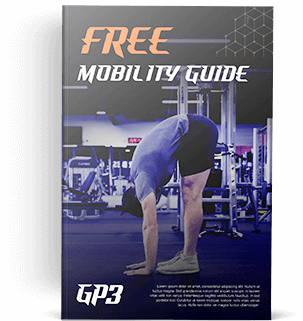Key Points:
1. Counting calories is the only weight change method that’s guaranteed to work if done correctly.
2. However, doing so correctly is not easy, and tracking meticulously for months on end is a recipe for misery.
3. I recommend tracking calories for 6-12 weeks to gain insight into your habits and patterns, then rarely tracking them again.
Estimated reading time 3-6 minutes
I have a complicated relationship with counting calories. I simultaneously believe it to be one of the best and worst methods for achieving weight change. Despite these mixed feelings, I believe nearly everyone should track every single calorie that enters their body for about 6-12 weeks…then rarely or never track calories again. If you’ll indulge me, I’m going to dive into why I hold such seemingly contrasting views about this method.
First, I hold it in high regard because if you want fat loss, calorie counting is the only method that, if done correctly, is guaranteed to work. On the other hand, there are so many barriers to doing so correctly that it’s often not worth it. I’m going to elaborate on the second part later, but we’ll focus on the first half of this statement for now.
If you are truly, verifiably, and consistently in a calorie deficit, you lose weight. It’s that simple. It doesn’t matter whether you’re eating a diet composed entirely of fruits and veggies, entirely of meat, or even just twinkies and oreos. A calorie is a unit of energy, and if your body is at an energy deficit, it dips into its sources of stored energy (typically body fat, muscle tissue, or glycogen) to make up for what you’re missing. Weight loss follows. Every time.
Calories Supersede Food Choice
The reason I say calorie counting is the only method guaranteed to work if done correctly is because it is literally physically impossible to gain weight when you’re in a true caloric deficit. However, you can easily gain weight on ketogenic diets, low-fat diets, vegan diets, carnivore diets, paleolithic diets, all-juice diets, and any other diet you can name, even if you do them “correctly.” All it takes for weight gain on these plans is eating more calories than your body burns. All of the above diets simply utilize a strategy of eliminating certain high-calorie foods to help you achieve a caloric deficit. Energy balance (calories in vs. calories out) is the underlying mechanism by which weight loss or gain functions, regardless of the method used to achieve a surplus or deficit.
As a quick aside, every couple of years, someone will propose the “Carbohydrate-Insulin Model of Obesity” as an alternative to energy balance. It sounds scientific and plausible, with one problem.
It’s simply incorrect.
Proponents of this model claim that the large amounts of insulin that can be released into the bloodstream after eating carbohydrates “trap” fat in fat cells, rendering it unable to emerge, even in the presence of a caloric deficit. This is not true. Further, no single metabolic ward study (the gold standard for calorie measurement) has ever shown someone to gain weight in a caloric deficit or lose weight in a caloric surplus, even when their insulin levels are high or they’ve eaten hundreds of grams of carbohydrates per day. All of these outcomes would have to be repeatedly demonstrated in order to prove that insulin levels and carbohydrate intake are more important than energy balance.
To be clear, hormones like insulin do play a role in how your body stores calories and how hungry you feel, and thus, how much you eat. However, this does not supersede energy balance. It has been studied to death, and it never has been and never will be possible for someone to gain weight when verifiably eating fewer calories than they burn, or lose weight when verifiably eating more calories than they burn.
Facing an Uncomfortable Truth
The point of all this is to develop a high level of ownership over the fact that if you’re not losing weight despite trying to, it’s because you’re regularly eating more calories than your body burns. This is a completely non-judgmental statement. There can be any number of good reasons why you may be regularly eating more calories than your body uses. But, once you accept the underlying reason, you can put your detective hat on and figure out where, when, and why you’re doing this, plus how to change it.
That’s why I recommend everybody track calories for 6-12 weeks. It’s eye-opening. Diligently tracking calories can be like looking at your credit card bill when the balance is way higher than you expected. You might think to yourself, “No way I spent that much!” But, then you go back through the charges one by one and realize, “Oh yeah…that’s when and what that was. Oh, and that, too. Yup, okay, that one as well. I guess I did spend that much.” Tracking calories closely for a short period of time can be a similarly necessary reality check.
However, there are a few reasons why I’m definitely not a fan of long-term calorie counting.
First, it can easily become an obsession. It can also suck the fun out of eating, and eating should be joyful. Eating is a fundamentally pleasurable experience. So, if you’re worrying about every calorie or macronutrient to the point where you can’t enjoy your meals, that’s an issue. This is why I only recommend short-term calorie counting. Doing so every day for months on end can lead to developing an adversarial relationship with one’s body and one’s eating habits. It can also lead to perfectionism and attempting to exert more control than is realistic.
To that end, counting calories is quite difficult to do accurately. Primarily, this is because there are tons of variables that determine how many calories you need in a given day. Further, most online calculators that estimate your caloric needs use formulas that vary greatly in accuracy. Put simply, it’s not easy to know how many calories you need. Even worse, studies have consistently shown that people are incredibly bad at estimating their own caloric intake. It’s common for people to report eating an average of 30-40% fewer calories than they actually consumed! Even professional nutritionists are likely to underestimate their caloric intakes by 10-20 percent.
I compare the way most people “track” calories to throwing darts in a pitch black room and hoping to hit a bullseye. They don’t know how many calories they need and they don’t know how many calories they’re getting. This explains why many people have had limited success with calorie counting.
Success with this practice is a skill. It requires patience, diligence, and a great attention to detail. It requires you to remember (or better, immediately write down) every single taste, lick, sip, and bite, not just your meals. It requires an accurate measurement of all sauces, toppings, and dips that compliment your meals. It requires being honest with yourself about how many chips or M&M’s you ate for a snack. And I’m not going to lie to you. This is work. It can also be quite tedious. Again, this is why I don’t recommend doing it for more than 6-12 weeks. That’s enough time to develop the skill and shift your perspective. Try to continue much longer and you’ll likely get bored with it and let your focus start to slip.
So instead, how can you make nutritional changes effectively?
This is going to be the subject of next week’s post, where I’ll go much more in-depth. The main concepts we’re going to discuss are:
- Your own personal “Nutrition Owner’s Manual”
- Your “Worth It Foods List”
- Your “Habit Tracker”
These three pieces form the cornerstone of lasting, sustainable nutritional change. Anyone can lose some body fat by eating nothing but baked chicken and steamed broccoli every meal for three months, but that’s rarely a good idea. Instead, channel your inner reptile and imitate the tortoise, not the hare. Find a way to lose weight at a steady pace while still enjoying what you eat, rather than trying to do it quickly and making yourself miserable…then gaining it all back (and more) later.
It’s easy to get caught up in the intricacies and details of various diets and nutrition plans, but next week, I’m going to give you the exact framework that will definitely work if you utilize it to its fullest potential.
Before you go, I’d love to hear from you! What’s your experience like with counting calories? Have you tried it? Do you love it, hate it, or somewhere in between?

